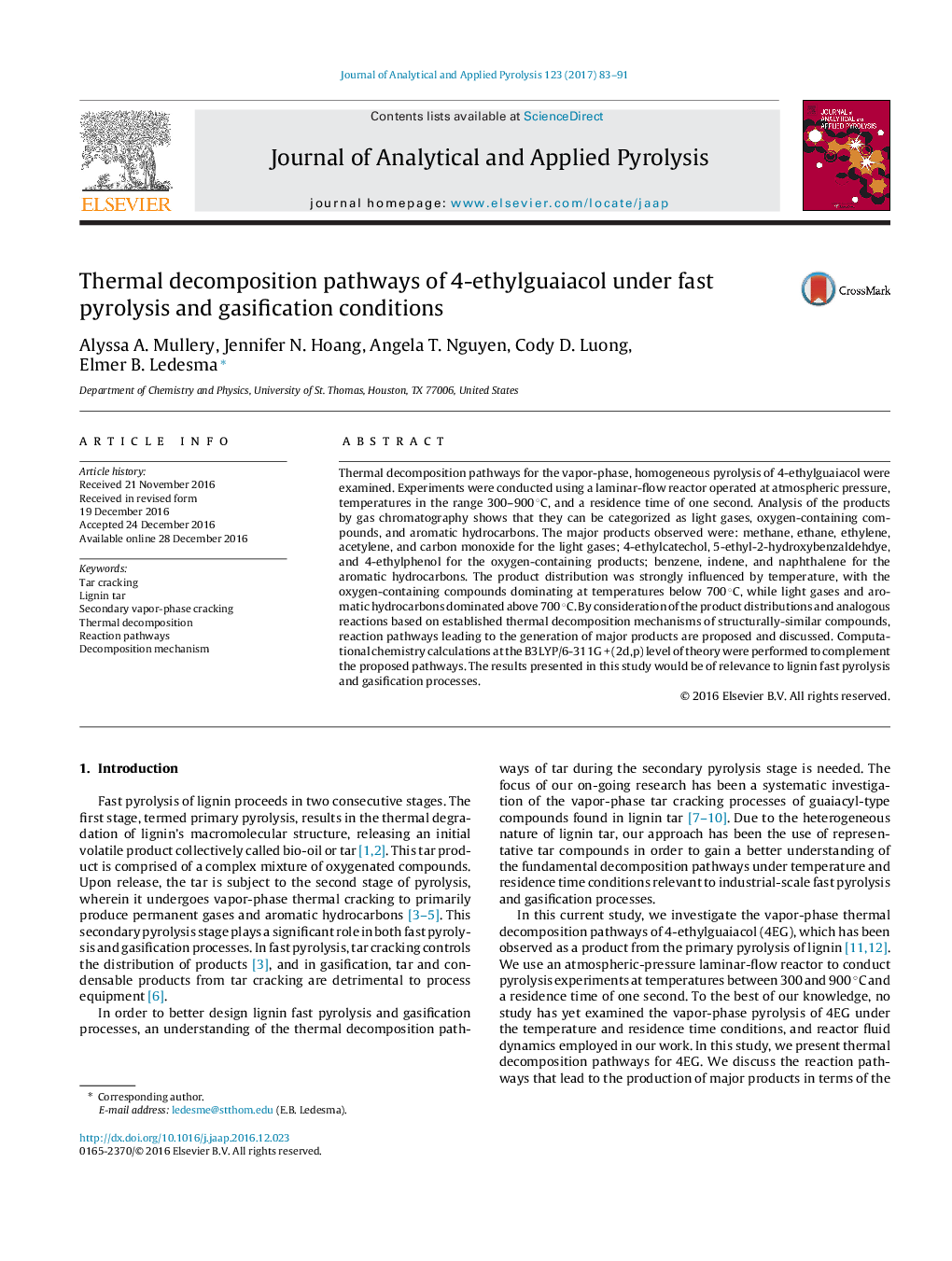| کد مقاله | کد نشریه | سال انتشار | مقاله انگلیسی | نسخه تمام متن |
|---|---|---|---|---|
| 5134524 | 1492954 | 2017 | 9 صفحه PDF | دانلود رایگان |

- Products are light gases, oxygen-containing compounds and aromatic hydrocarbons.
- Fate of ethyl-substituted radical in initiation step governs product distribution.
- Below 700 °C, thermal reaction pathways retain aromatic ring from 4-ethylguaiacol.
- Above 700 °C, thermal reaction pathways rupture aromatic ring from 4-ethylguaiacol.
Thermal decomposition pathways for the vapor-phase, homogeneous pyrolysis of 4-ethylguaiacol were examined. Experiments were conducted using a laminar-flow reactor operated at atmospheric pressure, temperatures in the range 300-900 °C, and a residence time of one second. Analysis of the products by gas chromatography shows that they can be categorized as light gases, oxygen-containing compounds, and aromatic hydrocarbons. The major products observed were: methane, ethane, ethylene, acetylene, and carbon monoxide for the light gases; 4-ethylcatechol, 5-ethyl-2-hydroxybenzaldehdye, and 4-ethylphenol for the oxygen-containing products; benzene, indene, and naphthalene for the aromatic hydrocarbons. The product distribution was strongly influenced by temperature, with the oxygen-containing compounds dominating at temperatures below 700 °C, while light gases and aromatic hydrocarbons dominated above 700 °C. By consideration of the product distributions and analogous reactions based on established thermal decomposition mechanisms of structurally-similar compounds, reaction pathways leading to the generation of major products are proposed and discussed. Computational chemistry calculations at the B3LYP/6-311G + (2d,p) level of theory were performed to complement the proposed pathways. The results presented in this study would be of relevance to lignin fast pyrolysis and gasification processes.
Journal: Journal of Analytical and Applied Pyrolysis - Volume 123, January 2017, Pages 83-91